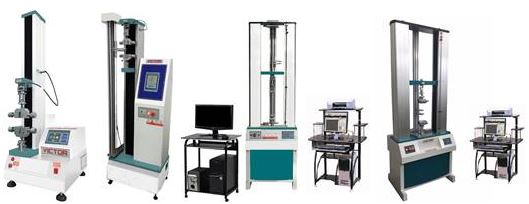VICTOR will help you to suggest the best suitable Universal Testing Machine for you. First, we diagnose your testing application fully before recommending a product. When you work with VICTOR, you work with sales professionals from engineering backgrounds that will help you find a solution to your testing needs.
When diagnosing your testing application, there are four main areas that we focus on:
- Specimen Material
- Test Type
- Testing Standard
- Capacity
Specimen Material
A broad range of materials including but not limited to adhesives, plastics, concrete, medical devices, metals, textiles, and wood can be tested with universal testing machines. The type of material as well as the dimensions of the sample play important roles in determining the right equipment for your needs.
Test Type
VICTOR universal testing machines are able to perform a variety of testing including tension, compression, bend, torsion, and peel testing.
Universal testing machine series include:
- VEW220 series Bench Top Universal Testing Machines
- VEW2302 series Dual Column Universal Testing Machines
- VEW2302 series Floor Type Dual Column Universal Testing Machines
- VAW series Hydraulic Universal Testing Machines
- VEW280 series Single Column Testing Machines
We also offer machines capable of torsion, axial-torsion, planar biaxial, and fatigue testing.

Testing Standard
Equipment Designed per & Preloaded with Standard Test Methods
Testing standards often play an important role when selecting testing equipment as most standards include sections with the recommended or required apparatus and fixturing. Standards also specify the details of the test such as preloads, speeds, and the distance between grips.
All VICTOR systems follow the standard practice for force verification of testing machines that is required in order to perform many ASTM and ISO specifications.
Capacity
VCITOR Sales Engineers will ask the maximum force required for your testing before recommending a specific product as our product lines are divided by capacity.
SUMMARY
The four categories discussed above play an important role in determining the right equipment for your testing needs. This will also affect the pricing of the required equipment. Instead of pushing our customers to one standard solution, we will ask the details of your testing and the expected outcome in order to find the right solution that will meet your needs.
